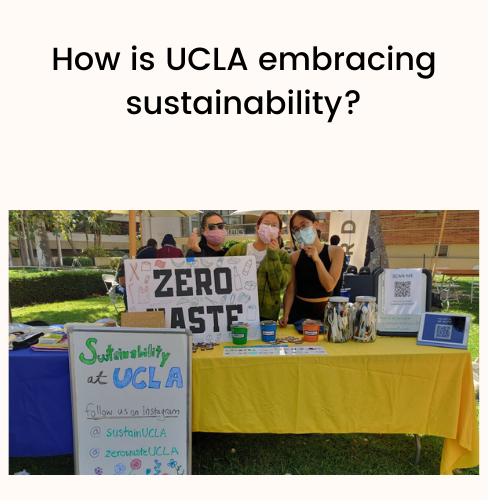Academic excellence, merits, and scholastics are what comes to mind when we think of educational institutions. But the rapid changes happening around the world has also shifted the focus of education. Gone are the days of old perceptions where education was about acing term papers and scoring placements. These are now just a small part of the bigger picture where people seek better relevance to the modern world. Sustainability is at the peak in today's time and age, with our planet facing numerous crises regarding pollution and global warming.
Table of Contents
According to the United Nations, sustainability is defined as "meeting the needs of the present without compromising the ability of future generations to meet their own needs". There are almost 140 developing countries in the world that are working to find more ways to meet their development needs. However, the increasing threats of environmental problems demand greater effort to prevent crippling future generations owing to misuse of resources. Here is where sustainability comes into the picture– ethical consumerism for reducing environmental impacts by changing our lifestyles to one that makes a difference.
UCLA Sustainability Progress
For the University of California Los Angeles (UCLA), sustainable development is at the forefront and an important part of their education system. They aim to "shape a community that is aware of, engaged in, and committed to advancing sustainability."
UCLA has a long history of sustainability leadership– from the formation of the Institute of the Environment and Sustainability in the 1990s to the launch of the Sustainable LA Grand Challenge in 2013. In collaboration with the other universities of California, UCLA has established various institutional goals over the years based on UC Policy on Sustainable Practices. And for the first time, all these have been brought together in a comprehensive sustainability plan for the campus. This plan is designed to bridge academics, operations, and community engagement while highlighting the intersections of planetary and human health. While the new sustainability plan aims to improve the many campus sustainability policies and programs, the initiatives that laid down the foundations of this plan still play their active parts. The Zero Waste plan is a comprehensive recycling and waste management program for waste materials from food and beverage containers to construction and electronic wastes. This policy aims to have a 90% diversion from landfills and a 25% reduction of waste per capita from 2016 FY levels by 2025.

Image by: UCLA Sustainability
The Zero Waste policy also extends towards the UCLA store, an enterprise of the Associated Students UCLA, offering sustainable clothing items, accessories, and college supplies. Target Zero Waste is one of their core values wherein they recognize their responsibility to minimize the negative impacts on the environment. Contributing to reducing waste generation and resource conservation by changing business practices, involving the community, and spreading awareness.
As part of making sustainability changes, the students of UCLA have also embraced Terra Thread's sustainable backpacks made from 100% organic cotton canvas. As an ethical brand, Terra Thread is committed to leading the transformation by giving consumers better, safer and eco-friendly essentials which aligns with the university's sustainability policies. But UCLA's sustainability practices don't end here— to reach their Zero Waste goals, they have implemented a campus-wide Single-Use Plastics Policy, adopted in October 2020. To transition from single-use plastic bags to reusable or compostable alternatives. And since the implementation, plastic items in retail and dining locations such as plastic foodservice and beverage bottles have been eliminated. UCLA takes this step further, bypassing its policy with accelerated goals to eradicate single-use plastics from the campus sooner than planned. The university has also introduced a Sustainable Transportation Plan where they encourage students, faculty, and staff to use sustainable modes of transportation. The policy aims to reduce carbon footprint and help develop a more active lifestyle while saving time and money. The BruinAccess is a complementary paratransit service that UCLA provides for qualified Bruins during academic weekdays from 7:30 a.m. to 6:00 p.m. Other alternatives like the BruinBus, E-scooters, etc. are also encouraged around the campus.
The Water Action Plan, another UCLA sustainability policy, targets to reach a 36% reduction in potable water use per capita from campus baseline by 2025 with an interim target of 20% reduction by 2020. The policy includes water conservation steps like water recycling, water reclamation program, ultra-flow urinals, drought-tolerant landscaping, and smart climatologically-based irrigation and drip irrigation.
The challenges against developing a healthier and resilient world are worsening. Taking up ambitious sustainable goals and engaging with the community to spread awareness is how we take action against global crises. UCLA's sustainable initiatives and efforts glorify what it means to truly embrace sustainable living and development— leading the change for the better today and tomorrow while serving as an inspiration on a global level.





